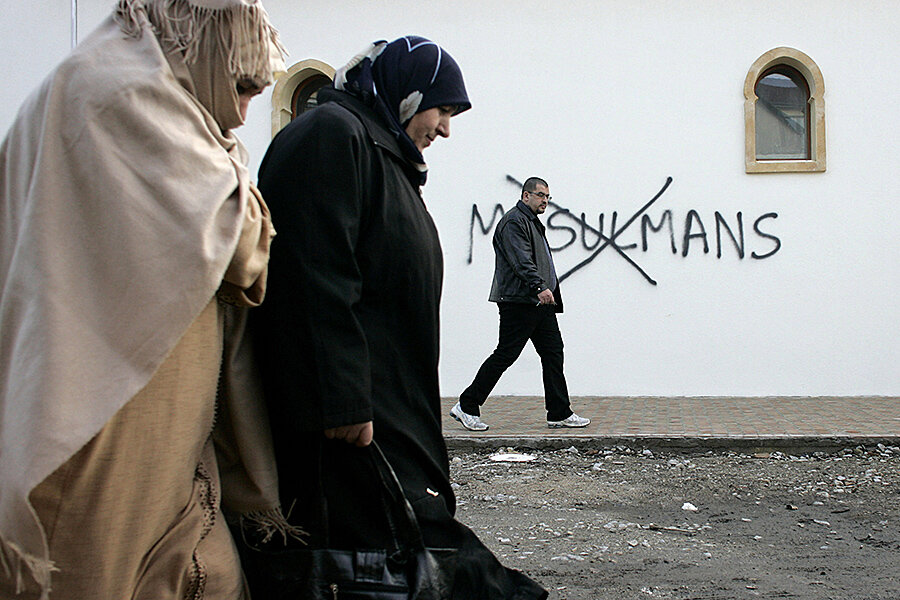
- German Raid on Islamic Center Hamburg (IZH): German authorities raided and shut down the Islamic Center Hamburg, accusing it of having links to Iran’s regime and Hezbollah, and promoting radical ideologies.
- Reasons for the Raid: The raid followed months of investigation into IZH’s suspected role in spreading anti-Western sentiments, radicalizing Muslim youth, and being part of Iran’s network of proxies in Europe.
- Criticism of the Raid: The raid has drawn criticism from human rights groups, religious leaders, and left-leaning political figures, who argue it could worsen interfaith relations and isolate Muslim communities in Germany.
- Broader European Anti-Islam Sentiment: The crackdown reflects wider European struggles with Islam, as far-right movements gain ground, pushing anti-Islamic agendas, and leading to policies like face-veil bans in several European countries.
Introduction
In a dramatic and unprecedented move, German authorities recently staged a spectacular operation that involved a raid on Hamburg’s Blue Mosque, a holy shrine in Shia Islam. This raid marks a significant escalation in Germany’s ongoing crackdown against what it perceives as an increasing religious threat in the country.
The Islamic Center Hamburg (IZH)
The Islamic Centre Hamburg (IZH) has been serving the Shiite Muslim community of Europe for a long time. It has been in operation since 1953 and has remained a vital cultural and spiritual institution, forming close societal bonds. However, over the years, the centre has been accused of links to Iran’s supreme leader and the Iran-backed militant group, Hezbollah.
German authorities believe that these connections indicate the IZH’s mission is to advocate for an Islamic revolution within German territories. Following investigations, the government placed the IZH and all associated organizations on the list of banned entities – the Blue Mosque was shut down, and 53 properties connected to the centre were also banned throughout the country.
The Reason Behind the Raid
The raid on the Islamic Center Hamburg was the result of several months of investigation into the institution. German authorities suspected the IZH of having links to the Iranian regime and of exerting influence over the local Shia Muslims. The centre was also accused of preaching radical ideologies favourable to the Iranian regime, promoting anti-Western sentiments, and supporting militant groups in the Middle East.
The German government has accused the IZH of being part of a larger network of organizations acting as Iran’s political and religious proxies in Europe. The centre was said to have activities that posed a security risk to Germany, including the radicalization of Muslim youths and the spread of violence against democracy. This led to the raid and the dissolution of the IZH as part of efforts to safeguard the country’s security and prevent further social unrest.
Criticism of the Raid
The dissolution of the Islamic Center Hamburg has had significant consequences and attracted criticism. Human rights groups, religious bodies, and politicians have raised concerns about the action. Critics argue that such a decision signals the beginning of religious persecution in Germany and believe that this action compromises religious liberties, particularly targeting Muslims. Some have even suggested that this was a politically motivated operation aimed at excluding Islam from Europe.
Religious leaders, both within and outside the Muslim community, have also criticized the raid, claiming it hampers interfaith relations and may worsen relations between Muslims and other religions in Europe. There are concerns that this move could further isolate Muslim youth, potentially driving them toward extremism rather than fostering integration.
Political figures, particularly from left-leaning parties, have condemned the government’s approach, arguing that it may aggravate societal divisions. They have stated that radicalization is more of a community issue, and the government should positively engage with Muslim communities rather than punishing the entire group.
The Role of the Federal Interior Ministry
Federal Interior Minister Nancy Faeser played a pivotal role in the enforcement of this ban. Unlike her predecessors, Faeser took decisive action based on intelligence and legal provisions. Her leadership in this matter underscores the government’s commitment to tackling extremism.

Image: Nancy Falser, (Federal Minister of the Interior)
Global Backlash and Domestic Debate
The crackdown has sparked reactions both in Germany and internationally. Iran immediately criticized the raids, warning that they could increase sectarian conflict in the region. Domestically, the move has generated controversy over the relationship between national security and privacy rights, especially in light of increasing anti-Semitic incidents and state authority powers.
Is Europe Facing an Unstoppable Islamization?
Germany is engaged in a broader European conflict regarding the assimilation of Islam into society. This struggle has intensified as far-right movements gain traction across the continent, pushing anti-Islamic agendas. A few months ago, Italian Prime Minister Giorgia Meloni expressed her viewpoint, stating that there is no place for Islam in Europe and calling Islamic values incompatible with European ones.
Meloni’s statements resonate with a rising sentiment spreading across Europe. Recently, Radical Right-Wing groups in the UK protested against what they called the “Islamization” of the country, while Poland has remained firm in rejecting Muslim immigrants, claiming cultural and religious incompatibility. These developments point to a growing anti-Islam sentiment evident in current European politics.

These sentiments have emerged due to concerns over the rising Muslim population in the United States and Europe, extremism-related issues, and recent terror incidents in Europe. Far-right groups have reinforced these sentiments through discursive strategies that portray Muslims as naturally prone to violence and Sharia law as incompatible with democratic liberal values. In many European countries, Islamic centres and mosques have become focal points for discussions about national identity, security, and religious practices.
Face-Veil Bans in Europe
Several European countries have passed bans on hijabs, niqabs, and other face-covering garments. France was the first country in the EU to prohibit them in public places in 2010, followed by Belgium. Austria, Denmark, and Bulgaria have implemented similar bans. The Netherlands has partial bans covering schools, hospitals, and public transportation, while Germany has bans in some of its states. Face-covering veils are also prohibited in some regions of Italy and parts of Catalonia in Spain. Switzerland banned face coverings in public through a referendum, and Norway has bans in nurseries, schools, and universities. These restrictions are traditionally justified in the name of security, secularism, or integration concerns but continue to be debated.
Conclusion
The closure of the Islamic Center Hamburg is not solely about counter-terrorism and religious extremism; it reflects broader issues that Germany and Europe are grappling with today. While German authorities continue to debate the balance between security and liberties, the measures taken in the IZH case have set a significant precedent. The impacts of this crackdown will resonate within Germany’s Muslim communities and in Muslim regions globally for years to come.
Moreover, the European struggle with Islam underscores a long-standing conflict that demands dialogue and understanding. With far-right politics on the rise and influential politicians advocating for policies of exclusion, the EU faces a crucial moment in defining its identity. The way forward requires effective security measures that do not compromise the integration of people from different cultures and religious backgrounds.
